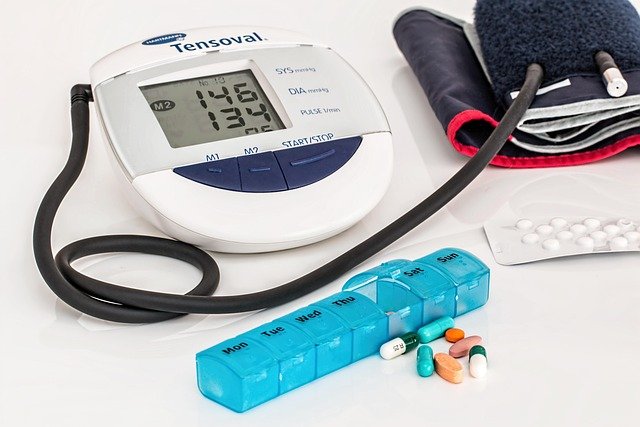Comprehensive Guide to Diabetes Medications: Understanding Your Treatment Options for Effective Management
Diabetes is a chronic disease affecting millions of people worldwide. Proper management is crucial for preventing serious complications. This article explores the latest advances in diabetes treatment, analyzing why doctors consider new alternative therapies, their similarities and differences in safety and efficacy, and the availability of affordable options. Let's take a closer look at these treatments and their mechanisms of action.

Diabetes management has evolved significantly over the past decades, with numerous medication options now available to help patients maintain healthy blood glucose levels. Understanding these treatment options empowers patients to make informed decisions alongside their healthcare providers about their diabetes care plan.
Best Alternatives to Metformin
While metformin remains a cornerstone of diabetes treatment, several effective alternatives exist for patients who cannot tolerate or use this medication. SGLT-2 inhibitors like empagliflozin and canagliflozin work by preventing glucose reabsorption in the kidneys, leading to glucose elimination through urine. GLP-1 receptor agonists such as semaglutide and liraglutide enhance insulin production while slowing gastric emptying, often resulting in weight loss benefits. DPP-4 inhibitors including sitagliptin and linagliptin offer glucose control with minimal risk of hypoglycemia. Insulin therapy remains essential for many patients, particularly those with type 1 diabetes or advanced type 2 diabetes.
Why Doctors Don’t Always Choose Metformin as First-Line Treatment
Although metformin is typically the preferred initial medication for type 2 diabetes, certain circumstances may lead physicians to consider alternative first-line treatments. Kidney dysfunction, with estimated glomerular filtration rates below 30 mL/min/1.73m², often contraindicates metformin use due to increased risk of lactic acidosis. Gastrointestinal intolerance, including persistent nausea, diarrhea, or abdominal discomfort, affects approximately 10-25% of patients taking metformin. Heart failure patients may benefit more from SGLT-2 inhibitors or GLP-1 receptor agonists, which have demonstrated cardiovascular benefits. Additionally, patients with significant obesity might derive greater benefit from medications that promote weight loss rather than metformin alone.
Foods to Avoid When Taking Metformin
Dietary considerations play a crucial role in maximizing metformin’s effectiveness while minimizing side effects. High-fiber foods consumed simultaneously with metformin can reduce absorption, so spacing these foods away from medication timing may improve efficacy. Excessive alcohol consumption increases the risk of lactic acidosis, particularly dangerous for metformin users. Simple carbohydrates and sugary foods can counteract metformin’s glucose-lowering effects, making blood sugar management more challenging. Large, high-fat meals may exacerbate gastrointestinal side effects commonly associated with metformin use. Patients should maintain consistent meal timing and composition to optimize medication effectiveness.
Why Metformin is Considered a Safe Choice
Metformin’s safety profile has been established through decades of clinical use and extensive research studies. Unlike many diabetes medications, metformin rarely causes hypoglycemia when used as monotherapy, making it safer for patients at risk of dangerous blood sugar drops. The medication has demonstrated cardiovascular benefits, potentially reducing heart attack and stroke risks in diabetic patients. Weight neutrality or modest weight loss associated with metformin contrasts favorably with medications that cause weight gain. The low cost and generic availability make metformin accessible to patients with varying insurance coverage. Long-term studies have shown metformin’s safety in pregnancy, making it suitable for women with gestational diabetes or those planning pregnancy.
Factors That Worsen Diabetes
Several lifestyle and medical factors can significantly impact diabetes progression and medication effectiveness. Chronic stress elevates cortisol levels, leading to increased blood glucose and insulin resistance. Inadequate sleep, particularly less than seven hours nightly, disrupts hormonal balance and glucose metabolism. Sedentary lifestyle contributes to insulin resistance and makes blood sugar control more difficult. Certain medications, including corticosteroids, thiazide diuretics, and some antipsychotics, can worsen glucose control. Infections and illness create physiological stress that typically raises blood sugar levels. Smoking damages blood vessels and worsens diabetes complications while making medications less effective.
| Medication Class | Example Drugs | Monthly Cost Range | Key Benefits |
|---|---|---|---|
| Metformin | Metformin, Metformin XR | $10-$50 | Low hypoglycemia risk, weight neutral |
| SGLT-2 Inhibitors | Jardiance, Invokana | $400-$600 | Cardiovascular benefits, weight loss |
| GLP-1 Agonists | Ozempic, Trulicity | $800-$1,200 | Significant weight loss, heart protection |
| DPP-4 Inhibitors | Januvia, Tradjenta | $300-$500 | Low hypoglycemia risk, weight neutral |
| Insulin | Lantus, Humalog | $200-$400 | Essential for type 1, flexible dosing |
Prices, rates, or cost estimates mentioned in this article are based on the latest available information but may change over time. Independent research is advised before making financial decisions.
Successful diabetes management requires a comprehensive approach that combines appropriate medication selection with lifestyle modifications. Healthcare providers consider multiple factors when prescribing diabetes medications, including patient-specific characteristics, comorbidities, and treatment goals. Regular monitoring and medication adjustments ensure optimal glucose control while minimizing side effects. Patients should maintain open communication with their healthcare team about medication effectiveness, side effects, and any concerns about their treatment plan. With proper medication management and lifestyle support, individuals with diabetes can achieve excellent glucose control and reduce their risk of long-term complications.
This article is for informational purposes only and should not be considered medical advice. Please consult a qualified healthcare professional for personalized guidance and treatment.



